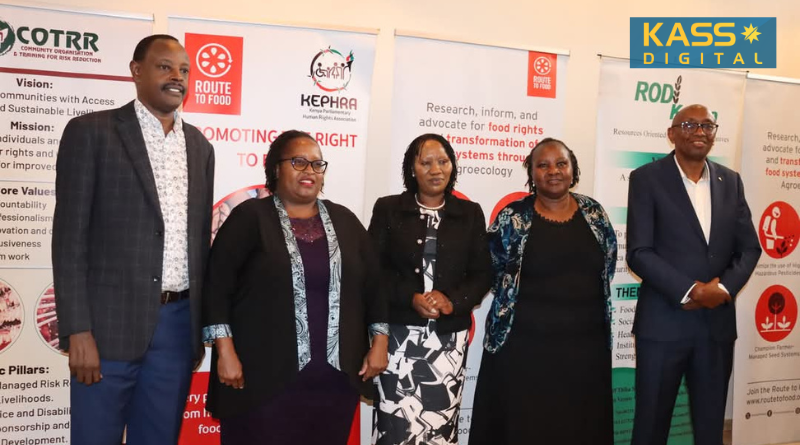Government Pulls More Than 50 Dangerous Pesticides Off the Market
By Chemtai Kirui
NAIROBI, May 15 – Kenya has banned more than 50 pesticide products in a sweeping reform aimed at protecting human health, biodiversity, and ecological integrity, the Ministry of Agriculture and Livestock Development announced on May 7.
The decision, unveiled by Cabinet Secretary Mutahi Kagwe, marks a significant policy shift in the country’s approach to agricultural chemicals, aligning national standards with international best practices, including those set by the UN’s Food and Agriculture Organization (FAO) and the World Health Organization (WHO).
Civil society organisations welcomed the move, calling it a “bold and long-overdue” step. However, they urged the government to fully implement the withdrawal, tighten regulatory oversight, and support safer, farmer-friendly alternatives.
“This is a historic commitment. If implemented effectively, it marks a decisive step towards a safer, more sustainable food system,” said Harun Warui, Programme Lead at the Route to Food Initiative (RTFI).
Regulatory Gaps and Legal Reform
The ban comes just months after the enactment of the Business Laws (Amendment) Act, 2024, which includes a provision targeting chemical double standards. The law prohibits the import or use of pesticides that are banned or severely restricted in their countries of origin but still exported to Kenya—a practice long criticised by advocacy groups.
A 2019 parliamentary petition had also called for the withdrawal of hazardous pesticides, but its recommendations were never fully enforced.
In April, the National Assembly’s Committee on Implementation revived the issue, citing “deep regulatory flaws” and reaffirming the need to prioritize public health over commercial interests.
While some products are scheduled for phase-out by December 2024, civil society groups say many remain in circulation—raising concerns over delayed enforcement and eroding public trust in Kenya’s pesticide oversight.
“We cannot continue exposing our farmers and consumers to substances already proven to cause harm,” said Anne Maina, National Coordinator of the Biodiversity and Biosafety Association of Kenya (BIBA).
Call for Transparency and Stronger Institutions
Advocates urged the government to publish the full list of banned pesticide products and to include commonly used active ingredients such as Glyphosate, Paraquat, Mancozeb, and Lambda-cyhalothrin—chemicals associated with both acute and chronic health risks.
The Pesticides Control Products Board (PCPB), Kenya’s main regulatory body, has faced criticism for limited resources and weak enforcement capacity.
Civil society groups welcomed Cabinet approval of a bill to transform the PCPB into a fully-fledged authority, saying the reform could help close long-standing governance and operational gaps.
They also called for the formation of an independent advisory panel—comprising toxicologists, public health experts, and farmer representatives—to review pesticide data and ensure decisions are evidence-based and free from corporate influence.
Pathway to Safer Farming
To support the transition, advocacy groups urged the Ministry of Agriculture to promote safer alternatives, including Integrated Pest Management (IPM), biopesticides, and agroecological farming.
They recommended using the Farmers’ Resource Guide: Achieving Food Production without Toxic Pesticides, published in 2024, to train farmers and agricultural extension officers.
“Withdrawal of harmful products must go hand-in-hand with practical alternatives that farmers can trust and apply,” said Eustaus Kiaire, Executive Director of the Kenya Organic Agriculture Network (KOAN).
If effectively enforced and adequately resourced, the government’s pesticide ban could influence the country’s position in regional sustainable agriculture and chemical regulation.




